 A sepia-toned album that, above all, creates its own space-time, I wouldn’t normally award points for escapism, but this one manages to bring its historical reference points into a rock ‘n’ roll context, which is the best trick they pull off on this tricky little gem of a record. This is funkier than their debut, and funkier than most albums that attempt to be funky. It’s also a lot squarer than most albums, which is a neat trick for an album so funky. Great production, as well. And fantastic use of horns, evokes ol’ time rural America and ’60s soul in equal measures: another neat trick. Another one of those groups who manage to pull off the on-the-verge-of-falling-apart thing with aplomb. That’s enough praise for this Band. –Will
A sepia-toned album that, above all, creates its own space-time, I wouldn’t normally award points for escapism, but this one manages to bring its historical reference points into a rock ‘n’ roll context, which is the best trick they pull off on this tricky little gem of a record. This is funkier than their debut, and funkier than most albums that attempt to be funky. It’s also a lot squarer than most albums, which is a neat trick for an album so funky. Great production, as well. And fantastic use of horns, evokes ol’ time rural America and ’60s soul in equal measures: another neat trick. Another one of those groups who manage to pull off the on-the-verge-of-falling-apart thing with aplomb. That’s enough praise for this Band. –Will
Jive Time Turntable
Joni Mitchell “Don Juan’s Reckless Daughter” (1977)
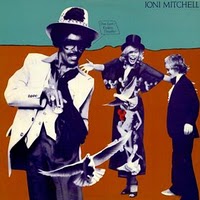 After plowing through the budget bins one weekend, I decided to spend five dollars on five Joni Mitchell albums and see what the hype was all about, and of the five I brought home, “Don Juan’s Reckless Daughter” was the one I found myself going back to. It seems that most of the people who fell in love with the radio-friendly, “pop” Joni thought this one was too random, weird, and abstract. I find it clever, wandering, curious, and self-indulgent in the best way possible. I love the production, super clean and bright, and every so often… When Jaco Pastorius hits those notes… It’s totally rich and full in the low end. But what I love the most is the experimentation on songs like “Paprika Plains” (which eats up a whole album side), and “Dreamland,” (featuring Chaka Khan) which ditches her traditional acoustic guitars for just drums and chants. The title track is my favorite song with it’s explosive bass drops and wandering lyrics. When you think you’ve heard all Joni has to offer, find this one! –Cameron
After plowing through the budget bins one weekend, I decided to spend five dollars on five Joni Mitchell albums and see what the hype was all about, and of the five I brought home, “Don Juan’s Reckless Daughter” was the one I found myself going back to. It seems that most of the people who fell in love with the radio-friendly, “pop” Joni thought this one was too random, weird, and abstract. I find it clever, wandering, curious, and self-indulgent in the best way possible. I love the production, super clean and bright, and every so often… When Jaco Pastorius hits those notes… It’s totally rich and full in the low end. But what I love the most is the experimentation on songs like “Paprika Plains” (which eats up a whole album side), and “Dreamland,” (featuring Chaka Khan) which ditches her traditional acoustic guitars for just drums and chants. The title track is my favorite song with it’s explosive bass drops and wandering lyrics. When you think you’ve heard all Joni has to offer, find this one! –Cameron
Wu-Tang Clan “Enter the Wu-Tang” (1993)
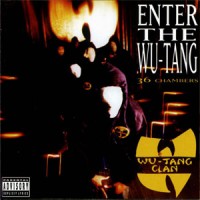
The RZA and GZA both were dropped from their label when their A&R influenced debuts bombed. So what did they do? They recruited 7 others of Staten Island’s finest (or as they say Shaolin) and got together to release their first single “Protect Ya Neck”. An impressive posse cut that included all but one member where every MC delivered. So in 1993, they planned to take over hip-hop and the east coast in specific with their debut, Enter the Wu-Tang (36 Chambers) and they really succeeded. This album is a classic to the fullest and features 9 different voices throughout. Each MC delivers at every chance they get and their energetic battle raps never get old. There’s so many excellent tracks to choose from, this album never bores. RZA is the mastermind of this ambitious project and he handles all the production. To say he changed the direction east coast producers took is an understatement. He brings a fully new production style which has some dark soundscapes that is simply excellent. RZA is one of the greatest producers ever and his work on this and the many Wu-Tang solo albums that followed in the five years after are proof. His production work is magnificent in here and you have to hear it to believe me. In addition, there’s some small amount of variety with “C.R.E.A.M.” which features an excellent, legendary hook by Method Man (the most commercially visible member) and two classic verses from Raekwon and Inspectah Deck about the ruff, fast lifestyle in the streets of New York. Although the interludes where the members are talking get annoying real fast (except the intro for “Method Man”, that one is a classic), the beats and lyrics are too good to be brought down by their retarded act when they talk. Oh yeah, RZA is also innovating new sampling sources by getting a bunch of kung-fu samples, most notably on the first few seconds of the album when “Bring da Ruckus” starts. 36 Chambers is simply a classic and words can’t justify how good it is, really. This album along with Da Beatminerz’ work on Black Moon’s Enta Da Stage and DJ Premier on Jeru the Damaja’s The Sun Rises in the East pretty much defines the beats of hardcore hip-hop in the east coast. —Prt Cpt
Uriah Heep “Uriah Heep” (1970)
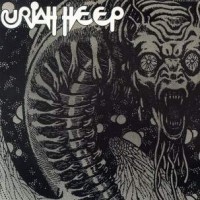
Any time the infamous, heavy-hatin’ thought police at Rolling Stone review an album saying “if this group makes it I’ll have to commit suicide,” you know you’re on to something good, and Uriah Heep’s debut remains a cornerstone of vintage hard rock, delivering a crushing assault that belies its 1970 release date. The bloodthirsty “Gypsy” sets things up with some burning guitar/organ interplay before diving into a Paleolithic riff over which Byron soars with layered vocals. It’s those wild, dramatic harmonies and the band’s authoritative thud that stamps these tunes as something uniquely intense and remarkable – Heep ain’t just the poor man’s Purple, folks! Check out the wild “Bird of Prey,” which predicts Queen with it’s jarring vocals (and kudos to whover swapped this in for the useless “Lucy Blues” from the UK issue), heavy boogie beast “Real Turned On,” and churning entries like “Walking in Your Shadow” and “I’ll Keep on Trying.” The melancholy ballad “Come Away Melinda,” and more involved concept pieces “Dreammare” and “Wake Up” are cool diversions from the mayhem, the band stretching out without losing the plot. Factor in a spacious, detailed production that places you right in the crossfire, and you can hear the metal being forged right inside your aching skull. —Ben
Howard Roberts “Antelope Freeway” (1971)
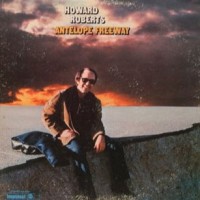
From the earliest days of electronic gimmickry and 16-track, 2″ recording comes this fusion curiosity, replete with all sorts of quaint psychedelic touches that were probably intended to garner radio airplay in some better world than this. As I recall, the reviewer in Down Beat burned poor Howard Roberts at the stake. A pity, because this fun recording has all sorts of great blues-inflected jazz-guitar showcases, humorous tangents, and audiophile sound effects to recommend it—assuming your tastes run to concluding an acoustic guitar transition with a stereo-panned motorcycle zooming through your living room. While it’s something of a stretch, at many points Antelope Freeway suggests Edgard Varèse’s use of processed tape effects and found sounds to create a spiky aural collage. A closer antecedent is the Firesign Theatre, whose influence is self-evident in “Five Gallons of Astral Flash Could Keep You Up for Thirteen Weeks,” a hilarious sendup of late-night journeys down the radio dial. None of this would mean a damn if it weren’t for a dynamic Record Plant multitrack recording, a hard-grooving Bitches Brew-lite rhythm section, and Roberts’ devoutly funky phrasing on such virtuoso workouts as “Sixteen Track Firemen” and “Roadwork”—or, in a luminously lyrical mood, on the Echoplexed harmonic balladry of “Dark Ominous Clouds” and “Santa Clara River Bottom.” —Chip Stern
Captain Beyond “Captain Beyond” (1972)
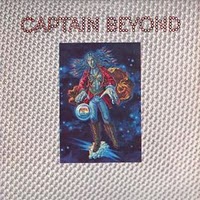 Psychedelic rock emerging from its Technicolor cocoon as a decidedly more metallic butterfly. This is one of the first metal albums and still one of the best. It runs through a quick half hour of seriously kick-ass riffs and tricky rhythms that would suffice to leave some of us sufficiently breathless were it not also for the stoner imagery and a general atmosphere of stoopid awesomeness that I find transporting—despite myself. Sure, it gets overly dopey towards the end, but most of its listeners are doped up by that point, anyway. Guitar, bass, and drums manna for those of us who like that sort of thing. As for the rest of you… well, who asked you, anyway? Highly recommended late-night listening. –Ben
Psychedelic rock emerging from its Technicolor cocoon as a decidedly more metallic butterfly. This is one of the first metal albums and still one of the best. It runs through a quick half hour of seriously kick-ass riffs and tricky rhythms that would suffice to leave some of us sufficiently breathless were it not also for the stoner imagery and a general atmosphere of stoopid awesomeness that I find transporting—despite myself. Sure, it gets overly dopey towards the end, but most of its listeners are doped up by that point, anyway. Guitar, bass, and drums manna for those of us who like that sort of thing. As for the rest of you… well, who asked you, anyway? Highly recommended late-night listening. –Ben
Roky Erickson and the Aliens “The Evil One” (1981)
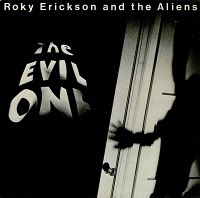 After serving some time in a mental institution, Roky Erickson, gifted vocalist of the prolific psych outfit 13th Floor Elevators, pheonixed into a paranoid messiah of rock, shedding any traces of campiness from his 60’s catalog in the proccess. “The Evil One” is a raging slab of psychedelic punk driven by Roky’s wonderful Texas fried and acid fed voice. He shrieks in terror as if to warn world of the demons in his mind. Although the lyrical subject matter is almost comical; vampires, a two headed dog, the devil, etc…, it’s delivered with a sincerity comparable to Syd Barrett’s solo albums or even a homeless person in the street raving on about something out to get them. But aside from any side stories of mental breakdown or heavy drug intake, the record is a cold cut ripper. Full speed 70’s hard rock with out any filler or forced attitude and killer guitar runs throughout. A must have for rock, punk, or psychellic heads. Just make sure your mind is together before dropping the needle, it might not come back. -Alex
After serving some time in a mental institution, Roky Erickson, gifted vocalist of the prolific psych outfit 13th Floor Elevators, pheonixed into a paranoid messiah of rock, shedding any traces of campiness from his 60’s catalog in the proccess. “The Evil One” is a raging slab of psychedelic punk driven by Roky’s wonderful Texas fried and acid fed voice. He shrieks in terror as if to warn world of the demons in his mind. Although the lyrical subject matter is almost comical; vampires, a two headed dog, the devil, etc…, it’s delivered with a sincerity comparable to Syd Barrett’s solo albums or even a homeless person in the street raving on about something out to get them. But aside from any side stories of mental breakdown or heavy drug intake, the record is a cold cut ripper. Full speed 70’s hard rock with out any filler or forced attitude and killer guitar runs throughout. A must have for rock, punk, or psychellic heads. Just make sure your mind is together before dropping the needle, it might not come back. -Alex
Bill Evans “Symbiosis” (1974)
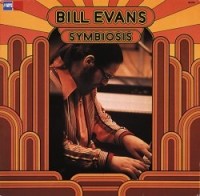
This recording is really amazing. Claus Ogermann’s compositions and arranging are top notch, and the music touches on some of Evans’ past piano work with George Russell and Miles Davis. The 2nd movement’s track 4 is truly one of my favorite Bill Evans performances. The space he creates while playing with such stark emotion is simply breathtaking. The album as a whole sounds great, and all of the pieces are excellent. The 2nd movement is more what Evans was exploring at the time, very introspective, while the 1st movement reminds me of the George Russell albums that Evans played a prominent role on. Also, this trio of his is really shortchanged by a lot of people. Eddie Gomez and Marty Morrell are simply fantastic. I would put this in my top 3 Bill Evans albums of all time. —Tolkkii
Tubeway Army “Tubeway Army” (1978)
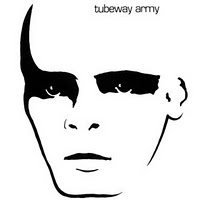 This is the Gary Numan we know and love, in his infancy. And although this is essentially a more guitar-oriented blueprint for Replicas, its sloppiness and low-rent ambiance give it a creepy feeling and skuzzy attack that makes this album a keeper not only for fans of the man-machine’s two or three subsequent classics, but of early “new wave” in general, before it had its edges smoothed away. Still, the album would have more impact as an EP, as Numan’s limits show themselves not quite equipped for the long player’s haul. Granted, the latter could arguably be said of his two or three subsequent classics, as well. –Will
This is the Gary Numan we know and love, in his infancy. And although this is essentially a more guitar-oriented blueprint for Replicas, its sloppiness and low-rent ambiance give it a creepy feeling and skuzzy attack that makes this album a keeper not only for fans of the man-machine’s two or three subsequent classics, but of early “new wave” in general, before it had its edges smoothed away. Still, the album would have more impact as an EP, as Numan’s limits show themselves not quite equipped for the long player’s haul. Granted, the latter could arguably be said of his two or three subsequent classics, as well. –Will
Queen “Jazz” (1978)
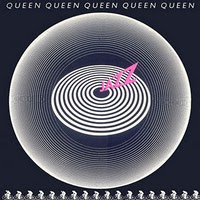 In comparison to much of the Queen back catalogue, this album has been ripped apart, criticised, and sometimes even ridiculed to the point that one begins to believe in the negativity and almost approaches this 1978 release with a view that it is going to stink however hard one tries to judge it objectively. O.K, it doesn’t contain any of the anthemic masterpieces one had become accustomed to. There is no “Bohemian Rhapsody”, “Somebody To Love”, ” We Are The Champions”, or “We Will Rock You”. Yes it does open with one of the most bizarre songs the band would ever record, the pseudo Arabesque “Mustapha”, which must have been a shock to regular fans.Yes one has to agree that their choice to stage an all nude female bicycle race at Wimbledon Racetrack and include a poster of the event with the album was not the most inspired promotonal strategy, particularly when one considers that The Womens Liberation Movement were at that time getting a certain amount of empathy for their vehement stand against Playboy, Miss World, and anything that showed women as objects for masculine amusement. Although the album would be released with the poster in the U.K, both Kmart and Sears in the States refused to handle “Jazz” with the poster, so American fans would only be able to purchase through Mail order. (It sounds like a Spinal Tap scene doesn’t it ?). The American press were particularly scathing, Rolling Stone reviewer Dave Marsh panned “Jazz”, and added “Queen may be the first truly Fascist Rock band”.
In comparison to much of the Queen back catalogue, this album has been ripped apart, criticised, and sometimes even ridiculed to the point that one begins to believe in the negativity and almost approaches this 1978 release with a view that it is going to stink however hard one tries to judge it objectively. O.K, it doesn’t contain any of the anthemic masterpieces one had become accustomed to. There is no “Bohemian Rhapsody”, “Somebody To Love”, ” We Are The Champions”, or “We Will Rock You”. Yes it does open with one of the most bizarre songs the band would ever record, the pseudo Arabesque “Mustapha”, which must have been a shock to regular fans.Yes one has to agree that their choice to stage an all nude female bicycle race at Wimbledon Racetrack and include a poster of the event with the album was not the most inspired promotonal strategy, particularly when one considers that The Womens Liberation Movement were at that time getting a certain amount of empathy for their vehement stand against Playboy, Miss World, and anything that showed women as objects for masculine amusement. Although the album would be released with the poster in the U.K, both Kmart and Sears in the States refused to handle “Jazz” with the poster, so American fans would only be able to purchase through Mail order. (It sounds like a Spinal Tap scene doesn’t it ?). The American press were particularly scathing, Rolling Stone reviewer Dave Marsh panned “Jazz”, and added “Queen may be the first truly Fascist Rock band”.
So..is “Jazz” really that bad ? Quite honestly, no it isn’t , it’s actually a good album. Ostensibly, it is the most diverse Queen album up to that period but much of the material is strong, entertaining, and one gets the impression that the band enjoyed “stretching themselves”, both musically and generically. The fun element of this recording comes through on songs like the macho Rocker “Fat Bottomed Girls”, the magnificent multi tracked Vocal arrangement on “Bicycle Race”, and the double entendre filled “Don’t Stop Me Now”, a whirling soaring Pop/Rock song on speed, and easily the best cut from the album. Freddie’s ballad “Jealousy” is gentle and sweetly performed and works well as does Brian May’s “Leaving Home Ain’t Easy”. The Roger Taylor songs are pretty bad (“Fun It”, clunky Disco Rock) and (“More Of That Jazz”, badly edited reprise music) and the John Deacon song “In Only Seven Days” seems like an act of appeasement so that all the band members can be recognised as song contributors.
“Jazz” really needs to be re-considered as a good album that was dumbed down by a Rock press who really didn’t understand that every top Rock band needs to diversify at some stage in their career, and although this isn’t Queen’s best work, it is at times both fun and entertaining. –Ben H
Talking Heads ‘77 (1977)
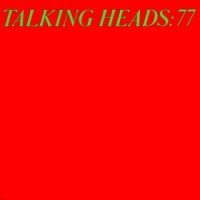
Talking Head’s music seems to attract the use of adjectives: jittery, angular, brittle, odd, quirky, weird, eccentric, intelligent – all these and more can be levelled against a band who were within touching distance of that much over-used and erroneous description: unique. With less attitude and aggression than their punk counterparts, Talking Heads managed to be more disturbing than most yet their music was tinged with a comic aspect. I don’t agree with those who say this album hasn’t aged well. It still seems as strange and awkward to me today. Take “Happy Days”. For me the song just doesn’t work at all. Byrne’s vocal squeaks and squawks around a restless rhythm that doesn’t seem to know where it wants to go. But, while it may not be very good, it still sounds new and different. However, when it does work it sounds great – like “New Feeling”. I’ve always believed that somehow the band managed to take basic reggae rhythms and twist and shape them into something that is immediately recognisable as Talking Heads. Some say they invented a new musical form, but that is plainly stretching the truth way past reality. But they were certainly clever enough to forge their own identity. Besides the stellar “Psycho Killer”, other highlights are “The Book I Read”, “No Compassion”, “Uh-Oh Love Comes To Town”, “Don’t Worry About The Government” and “Pulled Up”. —Ian
Sergio Mendes & Brasil ’66 “Stillness” (1971)
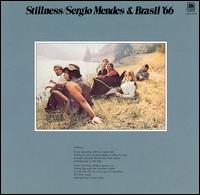 This is not one of your parent’s radio-friendly Brasil ’66 LP’s (although we love those too). Here the group seamlessly blend folk, Brazilian pop and psychedelic rock for some surprising results. The often sampled, funky version of Buffalo Springfield’s “For What It’s Worth” is a definite highlight along with the quiet title track, the jazzy version of Joni Mitchell’s “Chelsea Morning,” Caetano Veloso’s “Lost in Paradise” and the breath-taking arrangement of Blood, Sweat and Tears’ “Sometimes in Winter.” This often overlooked LP is a Jive Time Records’ staff favorite and one that sees a lot of our turntable. It’s also relatively scarce for a Sergio Mendes title so grab it when you see it! -David
This is not one of your parent’s radio-friendly Brasil ’66 LP’s (although we love those too). Here the group seamlessly blend folk, Brazilian pop and psychedelic rock for some surprising results. The often sampled, funky version of Buffalo Springfield’s “For What It’s Worth” is a definite highlight along with the quiet title track, the jazzy version of Joni Mitchell’s “Chelsea Morning,” Caetano Veloso’s “Lost in Paradise” and the breath-taking arrangement of Blood, Sweat and Tears’ “Sometimes in Winter.” This often overlooked LP is a Jive Time Records’ staff favorite and one that sees a lot of our turntable. It’s also relatively scarce for a Sergio Mendes title so grab it when you see it! -David


